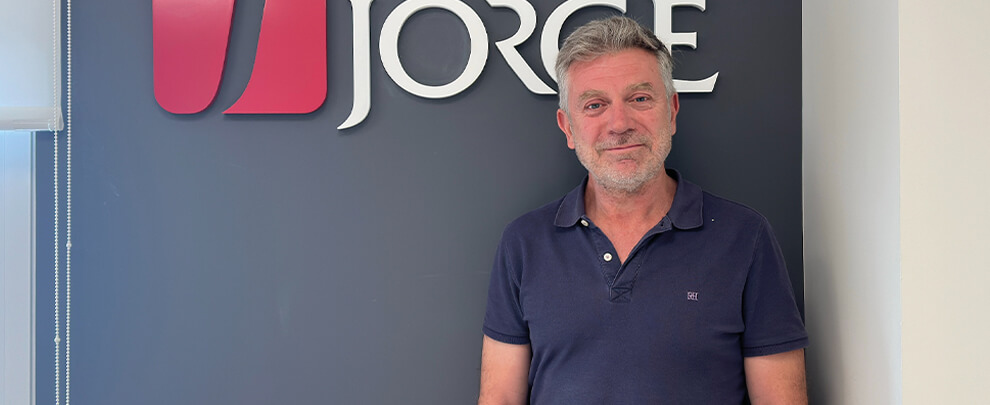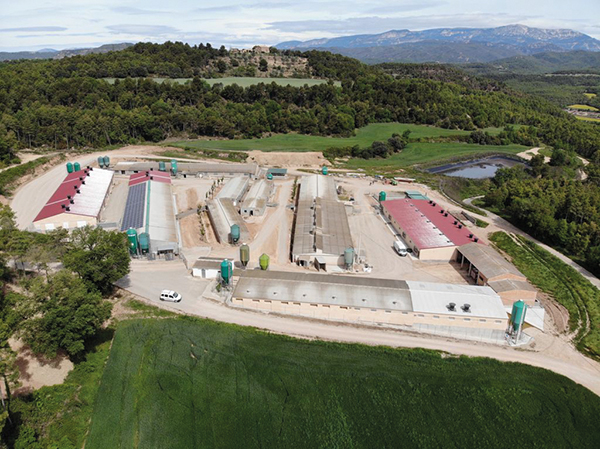Blog
Blog

A. González de Bulnes: "Biotegania aims to guarantee our effectiveness and sustainability"
01st October 2024 - News
To develop a comprehensive solution to control and prevent disease transmission between animals, optimise logistics processes, and reduce environmental impact. This is the premise behind Biotegania, a project promoted by a coalition of companies in the agri-food sector and research centres. It is based on using the latest technologies to achieve its objectives. We spoke with Antonio González de Bulnes, coordinator of the companies participating in the project.
What was the aim of Biotegania's origin?
The project arises from the concerns that different pork and poultry sector companies have regarding biosecurity and disease prevention issues, but from the point of view of biocontainment. We seek to treat everything that would function as a business structure as a single element: working on a farm and connecting the different farms, minimising the transmission of diseases between farms of the same building. Therefore, our primary objectives are to increase biosecurity throughout the production flow and increase logistics efficiency, that is, to reduce the carbon footprint through optimising moves, both of people and animals, between farms of the same structure.
How is Biotegania being financed, and who is involved in its development?
The project is funded by the Centre for Technological Development and Innovation (CDTI) and the State Research Agency of the Ministry of Science, Innovation and Universities, and it has a coalition comprising seven companies and six research centres. As for the "white-coated" pork sector, there is Grupo Jorge and Cuarte, and, as far as the Iberian industry is concerned, Sánchez Romero Carvajal is the one participating. Lastly, from the poultry sector are Cobb España and Oblanca. On the other hand, we have Ada, a company dedicated to biosecurity control; Serprovit, which is in charge of digital logistics; and Exopol, which is in charge of analytics and diagnostics. The collaborating research centres are AZTI, the Centre for Poultry Quality and Animal Feed of the Valencian Community (CECAV), the Autonomous University of Barcelona (UAB), the Cardenal Herrera University (UCH-CEU), the Complutense University of Madrid (UCM) and the Polytechnic University of Valencia (UPV). The project also collaborates with the interprofessional Anprogapor and Avianza, and its nature is to be open to incorporating new companies.
What specific technologies are being used in this project to achieve its goals?
We use biotechnological detection tools, digital technologies and artificial intelligence algorithms to establish a strategy for continuous monitoring of the animals' environment. In addition, intending to use alternative methods to traditional antimicrobials, we work with bacteriophages and viruses to fight infections. Antibiotics are increasingly limited, and when biosecurity measures fail, we need an alternative tool: bacteriophages. Right now, we are exemplifying strains of E. coli. However, we want to expand to other bacteria and differentiate their existing strains on farms to see which phages they resist.
How does the Biotegania project contribute to improving animal health and welfare in swine farming?
The ultimate goal of the project is to consolidate all the facts about how animals are arranged, risks in terms of their movements and logistics issues in a single platform that allows us to make decisions and establish the actions of animal and human movements in an objective way and with greater capacity for data analysis. The final notion would be to have a platform with biotechnological, digital and artificial intelligence tools to detect, prevent and control the appearance of communicable diseases and to optimise logistics and production processes.

Biotegania aims to increase the logistical efficiency of farms. Photo: Rotecna.
Is its implementation viable from an economic point of view?
The project's economic value isn't based on its cost but rather on the savings it generates. Being able to prevent PRRS outbreaks economically has a very significant impact. In addition, these technologies and artificial intelligence are becoming increasingly common on farms, and as they are implemented, their cost is reduced. In other words, it is no longer something specific that is assembled only for the customer and is completely tailor-made, but it is a structure where everything is integrated.
Regarding biosecurity and sustainability, what benefits do you expect to obtain from this project?
The level of biosecurity is expected to prevent outbreaks of diseases as severe as those we have had in previous years. On the other hand, if we talk about sustainability, everything that integrates digital logistics and movement scheduling are aspects that, at the integrator stage, this project can potentially yield significant benefits, as it reduces costs caused by inadequate vehicle movements. All this is very important because we take economic sustainability into account and care about environmental sustainability. Superfluous movements are often made because they do not have adequate logistical programming, and we intend to make Biotegania progressively more effective and accurate in these areas.
What challenges or limitations might farmers face when implementing these technologies?
We have learned that we are working with biology and that many factors influence the outcome. Some of them we know, but others we don't, and we won't be able to control them. In this project, we have become more humble and are now more aware that there are still technologies in development that need to be tested and implemented.
Can this project contribute to global food security?
Yes. In the end, Biotegania aims to guarantee our efficiency and sustainability. And in this case, it is about contributing to the economic sustainability of farmers so that they can continue to carry out their activities. In this way, we guarantee food safety while minimising, for example, outbreaks of diseases such as PRRS that we have had in previous years and that we continue to have, directly affecting the number of animals that end up arriving at slaughterhouses. In a world where so much animal protein is consumed, it is vital to maintain production and ensure safety.
What are the next steps for the project?
Biotegania is a project that all the companies involved consider open. We are now conducting a pilot test. Depending on the results, we can use other infrastructures in the sector or the knowledge and experience of different companies. Ultimately, we want it to benefit everyone.






